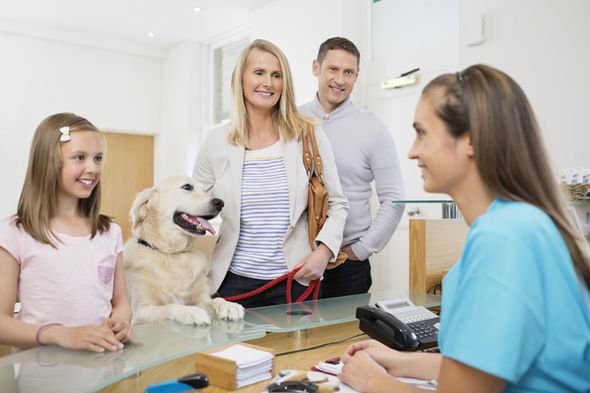对于狗和它们的主人来说,去看兽医是生活中的一个事实。虽然我们的一些四足朋友可能不喜欢这种经历,但这并不一定会给他们带来创伤。
通过遵循我们的建议,您可以帮助您的狗狗对兽医就诊(从到达诊所到在检查室接受检查)感觉更好。

即使你不需要去,也可以花时间去拜访兽医,让你的狗去看兽医成为一种更积极的经历——也许每周一次,在散步的时候。您可以要求练习人员每次给您的狗一些美味的食物并大惊小怪(但前提是您知道您的狗喜欢这个!)
这样,你的狗就会对兽医产生温暖、积极的感觉。当您的狗下次需要去看它们时,拜访时的压力应该会减轻一些。
许多狗不喜欢去看兽医的事情之一就是被触摸,尤其是在它们不习惯被触摸的地方。您可以在去看兽医之前让您的狗习惯被触摸,从而帮助您的狗:
与狗训练的许多方面一样,“少量多次”的方法往往效果最好,所以每周留出一些时间,让这成为你玩耍时间的一部分。
欲了解更多信息,请参阅我们的页面 教导您的狗在被抚摸时感到舒适。
当您带着您的狗去看兽医时,尝试带上它们最喜欢的玩具、毯子或两者都带上。这应该可以帮助他们感到更加放松和安全。
如果可以的话,坐在离门远一点的地方。狗狗会发现在这个繁忙的区域很难放松,所以离得越远越好。
确保您的狗背对其他狗并与其保持一定距离也很有帮助。如果您在兽医诊所预约一个安静的时间,事情会更容易。
轻轻地鼓励你的狗把注意力集中在你身上。这将帮助它们避免与其他狗的目光接触,这通常是在候诊室的有限空间内造成紧张或沮丧的原因。
在兽医那里,你是你的狗最好的朋友,他们依靠你为他们说话。如果他们在检查室感到压力或开始咆哮,你可以礼貌但坚定地要求你的兽医停止他们正在做的事情。您的狗和您的兽医都会感谢您的发言。忽视你的狗或责骂它们可能会让情况变得更糟。
咆哮或紧张是你的狗表达“我真的不舒服!”的方式,但你的兽医可能太专注于检查你的狗而没有注意到。告诉你的兽医发生了什么很重要——毕竟,你是主人,最了解你的宠物。
狗在兽医检查期间可能会咬人,因为主人和兽医忽视了狗的咆哮,而狗觉得他们没有其他方式来表达他们在这种情况下感到多么不高兴。了解您的狗与您交流的不同方式将有助于确保每次去看兽医都是愉快的。
| 曲奇饼 | 期间 | 描述 |
|---|---|---|
| cookielawinfo-复选框分析 | 11个月 | This cookie is set by GDPR Cookie Consent plugin. The cookie is used to store the user consent for the cookies in the category "Analytics". |
| cookielawinfo-复选框功能 | 11个月 | The cookie is set by GDPR cookie consent to record the user consent for the cookies in the category "Functional". |
| cookielawinfo-复选框-必要 | 11个月 | This cookie is set by GDPR Cookie Consent plugin. The cookies is used to store the user consent for the cookies in the category "Necessary". |
| cookielawinfo-复选框-其他 | 11个月 | This cookie is set by GDPR Cookie Consent plugin. The cookie is used to store the user consent for the cookies in the category "Other. |
| cookielawinfo-复选框性能 | 11个月 | This cookie is set by GDPR Cookie Consent plugin. The cookie is used to store the user consent for the cookies in the category "Performance". |
| 查看的_cookie_政策 | 11个月 | 该cookie由GDPR Cookie Consent插件设置,用于存储用户是否同意使用cookie。它不存储任何个人数据。 |
在继续您的收养申请之前,请查看并接受我们的数据处理惯例:
笔记: By clicking "I Agree & Continue", you will be redirected to an external application form. This tracking system logs your interest but does not capture data from the external form.
在继续您的收养申请之前,请查看并接受我们的数据处理惯例:
笔记: By clicking "I Agree & Continue", you will be redirected to an external application form. This tracking system logs your interest but does not capture data from the external form.